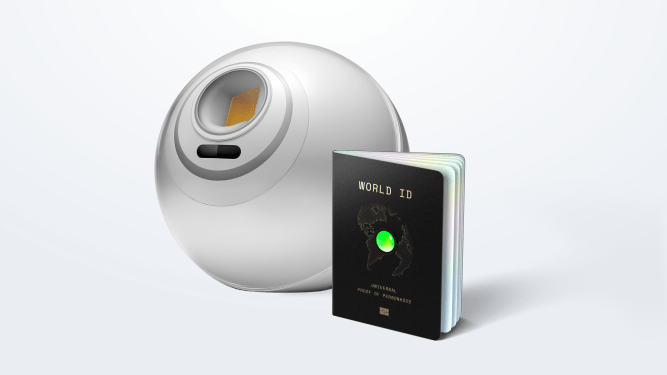World’s Biometric ID Tech Expands with Strategic Partnerships

In a bold move to broaden its reach, World, the company behind the biometric Orb devices known for their innovative eyeball-scanning technology, has announced partnerships with major players including Match Group, the parent company of Tinder, Visa, Kalshi, and Morpho. This strategic expansion aims to integrate World’s identity verification system into everyday applications, making biometric ID technology more accessible to a wider audience.
Tinder users in Japan will soon be able to verify their identities using World’s advanced system, a step that aims to enhance user trust and safety in online dating. This partnership represents a significant application of biometric technology in consumer-facing services, showcasing its potential to streamline identity verification.
Additionally, collaborations with Kalshi, a prediction market startup, and Morpho, a decentralized lending platform, will allow users to access these services simply by using their World-registered IDs. These integrations signify a trend toward simplifying access to various services that require secure identity verification—a crucial step in today’s digital economy.
Among these innovations is the upcoming World Card, which integrates digital asset transactions into daily life. Set to launch in the U.S. by the end of this year, the card will allow users to seamlessly transact with cryptocurrencies, automatically converting digital assets to fiat currency when needed. Further, users may receive rewards linked to specific AI subscriptions and services via this card.
A notable highlight during World’s recent announcement event was the unexpected partnership with Stripe, which will enable payments using World’s infrastructure on Stripe-enabled websites and apps. However, no timeline for this collaboration has been revealed yet.
Having raised substantial venture capital since its establishment in 2019 by Tools for Humanity, World is on a mission to make biometric ID verification mainstream. The ambition is clear: shift public perception and encourage acceptance of such identity verification methods, which have so far met resistance from users hesitant about having their biometrics captured.
As these partnerships unfold, the integration of biometric technology into major platforms marks a pivotal shift towards securing digital spaces and utilizing the potential of identity verification far beyond niche uses. Experts believe that as society moves further into digital realms, solutions like those offered by World will become necessities rather than luxuries, fostering a new era of digital trust and safety.
